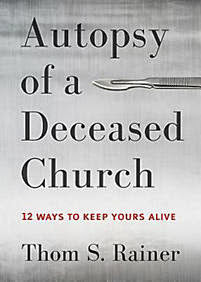This review was first published at Panorama of a Book Saint on April 14th, 2014. It is one of the best books I have read this year.
conrade
TITLE:
Planted: A Story of Creation, Calling, and Community
AUTHOR: Leah Kostamo
PUBLISHER: Eugene, OR:
Cascade Books, 2013, (172 pages).

This is a beautiful book. Few books have managed to capture the essence of nature, the joys of community, and the affirmation of a simple calling like this one. Leah Kostamo, a wife, a former campus ministry worker, as well as a co-founder of the A Rocha ministry based in BC Canada, has shown us how good stories can be told with simplicity, with insight, and with humour. Combining her love for creation and conservation, her natural talent for observing details in ordinary things, her passion for community building, coupled with her eloquent use of words, this book is destined for greatness in the literary world. As a memoir, readers will be humbled at how the author and her husband Markku would give up lucrative careers, sell their house, and to pour all their assets into a non-profit ministry without guarantee that it would even survive its initial years. Yet, it did and it did so marvelously, blessing, teaching, and enabling thousands of visitors and volunteers at their farm facility. The ministry in Canada began as a seed back in 1996 at a Regent College course entitled, "Incarnational Mission" led by Peter and Miranda Harris, who had founded A Rocha in Portugal. Eight years later, the idea took root, and sprouted trunks and branches through personal investments as well as generous givers and loaners by those who expressed faith enough to walk with the Kostamos.
The book is also a mini-ecological guide. We learn about the threats of worldwide extinction of 13% of birds, 25% of mammals, and 41% of amphibians. We see how a tiny shrimp plays its microscopic role in a complex and delicate ecological environment, that benefits beavers, bears, and big trees. We read about invasive species, weeds, the birds, and even slugs. Along the way, Kostamo makes sure we do not get carried away in the natural world and forget about the technological world. With a deft touch of humour, she compares and contrasts pods of orcas with iPods! It can also be used as a primer in becoming more nature aware. We are encouraged to think about the tap water we have, to think about its source, its distribution channels, and all the resources poured into the whole system. We are challenged to think about the gardens, how the seasons impact life, the variety of birds and nature around us, and even rocks and minerals that seem so mundane for the busy individual.
It is also a guide for a deeper awareness of what eating entails. For those of us whose limited vocabulary of eating centered around restaurants, the food on our tables, or the kitchen, we get invited into a world of farming, of growing our own food, and the beauty of real food over processed stuff. Food is not just something to be consumed, but it can incorporate a work of art in itself. Beyond the feasting, we will appreciate the preparation beyond mere cook books, and to be respectful in the way we partake of God's providence for us. Slowly but surely, the book becomes a rallying point in the practice of Micah 6:8, that we learn to live justly, love mercy, and to walk humbly. Very aptly, the book closes with a relook at the biblical Sabbath, reminding us that working hard and doing good have their limits. Man can only do so much. Everything else totally depends on God alone. The keeping of the Sabbath is a powerful reminder that we by ourselves are limited. That is why Sabbath keeping enables us to be natural ourselves one day a week, as we busy ourselves with nature on the other six days.
This book is a rare find. More accurately, the book found me. When contacted to do this review, I promptly agreed because of curiosity in part, and to support a fellow Regent alum as well. Little did I know that I would be receiving a literary gem, a unique seed that germinates in me a greater appreciation of nature and creation. Most of all, I am humbled by how the Kostamos' passion-turned-reality have blessed people of all ages from all walks of life. There is a lot of material in this humble looking book. Open it up at any one page and you can easily find a point or two to learn from and to contemplate after.
I am full of praise of the quality of this book. I particularly appreciate the three points to show us the way forward, namely; 1) Practice Gratitude; 2) Practice Generosity; and 3) Practice the Sabbath Keeping. On all three counts, I say a hearty Amen! A clear best of the best so far in my 2014 stack of books.
Thank you, Leah Kostamo for letting me know that this book even existed.
Rating: 5 stars of 5.
conrade
This book is provided to me courtesy of the author in exchange for an honest review. All opinions offered above are mine unless otherwise stated or implied.

.jpg)



